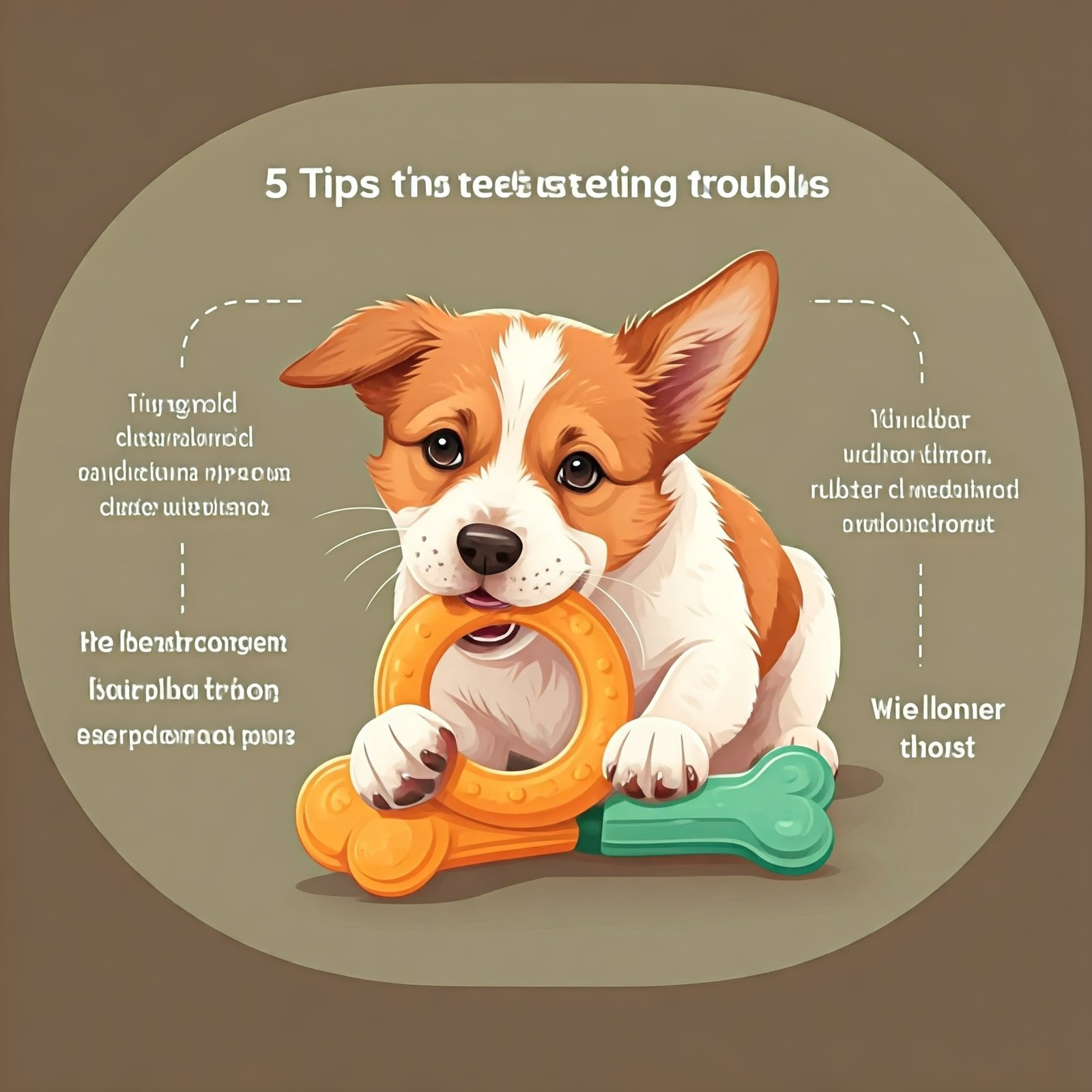Bringing a new puppy home is always exciting but challenging, especially when they start teething. Puppies have 28 tiny, sharp teeth that find your fingers, toes, and furniture irresistible.
Nipping and chewing are normal behaviours for teething puppies but can be frustrating. Thankfully, with a few simple strategies, you can protect your home and help your puppy through this stage.
Here are five tips to save your home from teething puppy troubles.
Provide Appropriate Chew Toys and Treats
Teething puppies have a natural urge to chew to soothe their gums, which can lead them to chew on anything they find, including your furniture and shoes. To prevent this, give your puppy a variety of chew toys and treats.
Choose toys from different materials, such as rubber, nylon, and cloth. Rubber toys are great because they’re durable and can withstand heavy chewing. Nylon toys are more rigid and can help clean your puppy’s teeth. Cloth toys can be soft and comforting, especially if you freeze them to provide extra relief for sore gums.
Rotate the toys to keep your puppy interested. If a toy is always available, your puppy might get bored. Regularly switching out toys makes them seem new and exciting.
You can also use household items like a damp, frozen washcloth. The cold can soothe your puppy’s gums. Just supervise your puppy with any new toy to ensure it’s safe.Along with toys, provide your puppy with chew treats. These treats are specially designed for teething puppies and can help soothe their gums while providing a tasty distraction. Look for puppy chew treats that are safe and made from natural ingredients.
Puppy-Proof Your Home
Like baby-proofing, puppy-proofing your home is essential to keep your belongings safe and ensure your puppy stays out of trouble. Puppies are curious and full of energy, and they love to explore their surroundings by chewing on anything they can find. Here’s how to make your home puppy-proof:
- Remove or Secure Items at Puppy Level: Look around your home and remove or secure any items that could be chewed on at your puppy’s level. It includes shoes, books, remote controls, and small furniture. Store these items in higher places or behind closed doors.
- Use Baby Gates: Baby gates are a great way to block off areas where you don’t want your puppy to roam freely. Use them to restrict access to certain rooms or to create a safe play area for your puppy. That helps prevent them from getting into areas where they might find things to chew on or get hurt.
- Keep Electrical Cords Out of Reach: Electrical cords are hazardous for puppies who might chew on them out of curiosity. Make sure to hide or secure cords by using cord covers, taping them to the wall, or placing them behind furniture. It will help prevent your puppy from chewing on them and potentially getting shocked.
- Store Hazardous Items Safely: Keep hazardous items such as cleaning supplies, medications, and small objects that could be swallowed out of reach. Store these items in cabinets with childproof locks or high shelves where your puppy can’t access them.
- Provide Safe Spaces: Create designated safe spaces for your puppy to play and explore without trouble. Use crates, playpens, or designated puppy-proofed rooms filled with toys and treats.
Use Deterrent Sprays
Deterrent sprays can help keep your puppy from chewing on furniture and other household items. These sprays taste bitter, which puppies don’t like, making them less likely to chew on sprayed surfaces
Ensure to choose a safe, non-toxic spray designed for puppies. Consider testing it on a small, hidden area first to ensure it doesn’t damage the item. Then, spray it on items your puppy likes to chew, covering the entire surface.
Reapply the spray regularly to keep it practical, especially if it is frequently touched or cleaned.
Maintain a Routine
A structured routine can help reduce anxiety and boredom, which are common triggers for destructive chewing. Puppies thrive on consistency and knowing what to expect from their day.
Establish a daily routine that includes regular meal times, exercise, playtime, and rest to help your puppy feel more secure and less anxious. Ensure your puppy gets plenty of physical exercise through walks, play sessions, and interactive games.
Mental stimulation is also necessary, so include activities like puzzle toys, training sessions, and new experiences. A tired puppy with enough physical and mental exercise is less likely to chew on your belongings.
Positive Reinforcement Training
Positive reinforcement training is a great way to teach your puppy what they can and cannot chew. When your puppy chews on the right items, such as their toys, reward them immediately with treats, praise, or petting.
It helps them learn that chewing on their toys is good behaviour. If you catch your puppy chewing on something, it shouldn’t gently redirect it to an appropriate chew toy. Avoid scolding or punishing your puppy, making it anxious and worsening the behaviour.
Instead, use a firm but gentle tone to say “no” or “leave it,” and then guide them to a proper chew toy. Be consistent; offer positive reinforcement whenever your puppy chews on the correct items.
Over time, your puppy will learn what is acceptable to chew on and what is not. This approach helps your puppy develop good habits and reduces destructive chewing.
Final Takeaway
Teething can be challenging for you and your puppy, but with the right strategies, you can protect your home and help your puppy through this stage. Don’t let teething troubles overwhelm you. Start implementing these tips today and enjoy the journey of raising a well-behaved, happy puppy.



